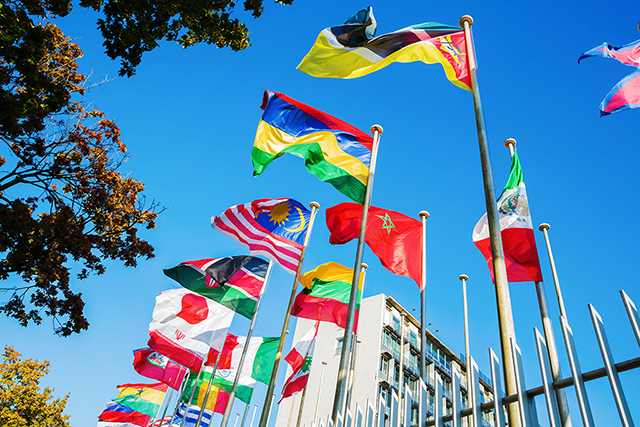Education and COVID-19
“We need every Member State on board to defend and advance the right to education, and to rethink education, now and in the healing and recovery of our societies, on fairer and more inclusive ground”
Stefania Giannini, UNESCO Assistant Director-General for Education
Governments around the world have temporarily closed educational institutions to contain the spread of the COVID-19 pandemic, a decision that has impacted more than 91% of the world’s student population(1). The disruption to learning is unprecedented and places new challenges on governments to ensure the continuity of learning, and on learners, parents, teachers and caregivers. While the pandemic continues to unfold, it is increasingly clear that education itself will be defined by a new schism – the policies and practices before COVID-19, and those that will come to define the next generation of learning.
During rapid transitions, equity is the paramount concern because school closures disproportionately hurt vulnerable and disadvantaged students who rely on schools for a range of social services, including health and nutrition. Extended school closures also remove education’s protective influence on the lives of learners from such harms as early marriage, unintended pregnancy, violence and sexual exploitation, and child labour.
In response, UNESCO is working with governments and all relevant stakeholders to ensure that all learners, without discrimination, are supported in terms of their academic, physical and emotional wellbeing. Experiences in effectively managing teaching and learning with locally adapted solutions and lessons learned are shared in a systematic manner in an open and collaborative space.
As the most populous and mobile world region, Asia-Pacific faces significant challenges but also continues to accumulate rich experiences with effective education sector responses to COVID-19 – from emergency management to post-pandemic planning. As part of the Global Education Coalition, UNESCO’s Asia-Pacific Regional Bureau for Education is providing critical technical assistance across four key areas:
- Helping countries to mobilize resources and implement innovative and context-appropriate solutions to provide education remotely, leveraging hi-tech, low-tech and no-tech approaches;
- Seeking equitable solutions and universal access to education/learning, including through formal and non-formal approaches;
- Ensuring coordinated responses and avoid overlapping efforts;
- Facilitating the return of students to schools, learning centres and higher education institutions when they reopen, to avoid an upsurge in dropout rates.
To ensure that #LearningNeverStops, UNESCO Asia-Pacific Regional Bureau for Education has been curating relevant, regional resources and making them publicly available online on the Asia-Pacific regional SDG4 Knowledge Portal. COVID-19 related resources are continuously updated and span a range of themes, from educational tools to support continued learning, guidance on school reopening, and longer-term policy and programme guidance for education officials in the post-emergency phase. Resources are sourced from among the 30 member organizations of the Asia and the Pacific Regional Thematic Working Group (TWG)-Education 2030+ that is co-convened by UNESCO and UNICEF.
The Asia-Pacific Regional Bureau for Education is also working closely with UNESCO field offices and institutes across the region to support Education Ministries in contingency planning, data gathering and monitoring, and is collaborating with education partners to carry out multi-country situational assessments on the impact of the pandemic, so that responses are informed by the best available evidence. Going forward, UNESCO will continue to rally education partners across the development, humanitarian and civil society communities and in the private sector, to leverage the COVID-19 response as an integral part of our efforts to sustain and accelerate progress towards SDG4. As we embark on the decade of action of the 2030 Sustainable Development Agenda, our responsibility as a community is to leave absolutely no one behind.
For questions, please contact: learning.bgk@unesco.org.
Priority initiatives:








